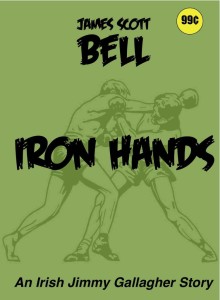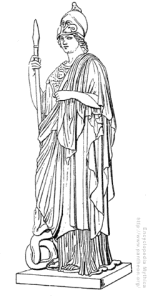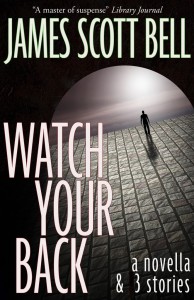By Jordan Dane
For my last post in 2011 with TKZ, I found a Wall Street Journal article on self-publishing that offered something a little different. We’ve all heard the big blockbuster sales of a precious few who have seen sales of more than a million books, but who can really relate to that? We can all hope lightning will strike and we’ll be the one benefiting from that good fortune, but I picked out the elements of this article that addressed the digital trend, growing successes that have not gotten much highlight, and what one author—Darcie Chan—did to grow her self-pub sales.
Many have heard about Amanda Hocking and John Locke’s stories of hitting it big. These stories represent a miniscule fraction of independent authors, but success is still being found. According to Amazon, 30 authors have sold in excess of 100,000 copies of their books through Amazon’s self-pub Kindle program and a dozen more have seen sales of 200,000+ — a program started in 2007 that allows authors to upload their own books, set prices, and publish in multiple languages. Barnes & Noble have their own version for their Nook readers.
Self-published books have fueled the surge in digital sales from $287 million in 2009 to $878 million in 2010, according to the Association of American Publishers. Analysts speculate that e-book sales will pass $2 billion in 2013. We’ve all seen how the publishing industry (authors, agents, publishers, stores, etc) are scrambling to figure out how to capitalize on this exploding trend.
So here is one author’s story about how she stuck to her dream of writing a book she believed in and took the plunge.
It took Darcie Chan two and a half years to write her book during the hours she wasn’t working her day job of drafting environmental legislation. After getting feedback from friends and family, she sent queries to more than 100 agents, but since it was a cross genre story (with elements of romance, suspense and mystery), it didn’t fit neatly on retail book shelves and got rejected as a “tough sell.” She eventually landed an agent who submitted her book to over a dozen publishers, they all rejected it for the same reason, so the book of her dreams landed in a drawer and Darcie got on with her life. FIVE YEARS LATER, she read about the rise in e-book sales and self-publishing and decided to do something about her dream. Here is what she did:
She made her own cover for THE MILL RIVER RECLUSE (about an agoraphobic philanthropist) from a photo her sister had taken of an old mansion and added Photoshop graphic elements to make it look gloomy.
She uploaded her book into the Amazon Kindle self-publishing program and sold a trickle of copies. A few weeks later, she loaded it onto Barnes & Noble, Smashwords, Apple’s iBookstore, Sony, and Kobo.
Her first royalty check was $39. That’s when she noticed that popular e-books were priced at $0.99 and immediately dropped her price from $2.99 to $0.99. (That cut her royalty percentage under Amazon rules from 70% on books priced at $2.99+ to 35% for novels priced below that threshold.) But sales picked up immediately for her and she found new readers who liked her book.
During the first month at her lower price, she sold 100 copies. She was thrilled with this, but by the end of June, her book got mentioned on a site called Ereader News Today, that posts tips for Kindle readers. Over the next two day period, she sold another 600 copies, giving her hope that she could drive her own sales.
She spent $1,000 on marketing, buying banner ads on websites and blogs devoted to Kindle readers and also bought a spot on Goodreads.com with its more than 6.6 million members.
She also learned that self-published authors could pay to have their book reviewed by some sites. She paid $35 for a review on IndieReader.com (who no longer offers paid reviews) and she paid $575 for an expedited review from Kirkus Reviews, a notable book review journal and website. (The Kirkus review service, launched in 2005, gives self-published authors the option to review privately if the review is negative. Darcie opted to have her book reviewed on Kirkus’s website and Kirkus called the novel “a comforting book about the random acts of kindness that hold communities together.” Darcie used quotes from the review and other reviews on Amazon and B&N for publicity purposes, to encourage more reviewers to try her book.
By July, she had sold more than 14,000 copies and got her noticed and featured on two of the biggest sites for e-book readers, which generated more sales. In August, she had sold more than 77,000 copies and had hit the New York Times and USA Today e-book bestsellers lists—and later she landed on the Wall Street Journal’s list too. In September, it sold more than 159,000 copies and 413,000 copies have sold to date.
Darcie and her agent have since offered her book to traditional publishers, but none have matched her royalty rates of 35-40% that she gets from Amazon and B&N. (Average print royalties range 10-15% with digital royalties usually set at 25%.) Simon and Schuster offered to distribute the book—as is—but Darcie wants the book professionally edited and marketed. So as of now, she is staying the course, content with how well her book is selling. She made an estimated $130,000 before taxes PLUS she’s getting a steady royalty check every month.
And from her success, she’s seeing interest from other parties. Foreign rights and audio book publishers have made offers and six movie companies have inquired about film rights.
Bottom line is that Darcie didn’t give up, even when everyone told her “NO.” No matter how you’re published, I think we can all learn from this woman’s perseverance.
This is my last post for 2011 since TKZ will be on our 2-week hiatus starting Dec 19th—the day my virtual tour starts with YA Bound. Happy holidays to our TKZ family and have a great 2012.








